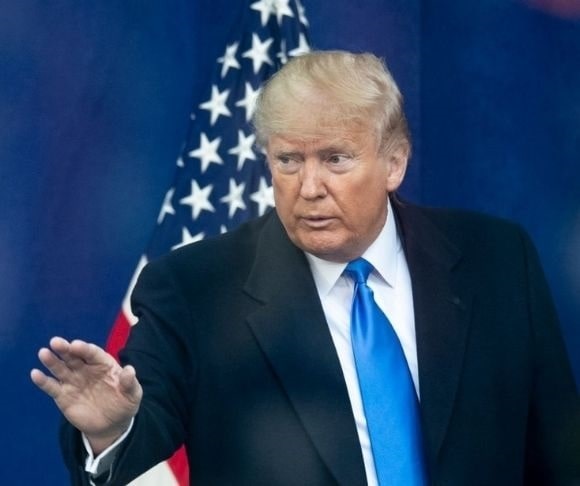After a marathon session in the House where former US diplomat to Ukraine William Taylor testified, Democrats called the event a “game-changer” in the impeachment inquiry. But what exactly did it change? House Democrats had claimed they already had the goods, so are they suggesting the investigation has changed from a wild bluff to something substantial? Or are we just witnessing more spin in the attempt to derail President Trump’s 2020 election chances?
The Testimony
 Ebullient representatives seem to think that with Taylor’s testimony they finally have the smoking gun, but as with much else that emanates from the Swamp, it could just be vapors. It was only a short while ago that envoy to the European Union Gordon Sondland’s words were supposedly going to bring down the president. Now, however, lawmakers are hinting that inconsistencies between the tales told by Taylor and Sondland will require a further session. So, who to believe?
Ebullient representatives seem to think that with Taylor’s testimony they finally have the smoking gun, but as with much else that emanates from the Swamp, it could just be vapors. It was only a short while ago that envoy to the European Union Gordon Sondland’s words were supposedly going to bring down the president. Now, however, lawmakers are hinting that inconsistencies between the tales told by Taylor and Sondland will require a further session. So, who to believe?
One of the more potentially damning statements to come from yesterday’s sitting is that, in Taylor’s understanding, the Trump administration sought unequivocal commitments from the Ukrainian government. He said:
“[T]he push to make President Zelensky publicly commit to investigations of Burisma and alleged interference in the 2016 election showed how the official foreign policy of the United States was undercut by the regular efforts led by Mr. [Rudy] Giuliani.”
While this certainly seems damaging, other witness statements muddy the waters and make it unclear whether this is definite proof of wrongdoing, or a misunderstanding of the situation. Taylor further said:
“Ambassador Sondland also told me that he now recognized that he had made a mistake by earlier telling the Ukrainian officials to whom he spoke that a White House meeting with President Zelensky was dependent on a public announcement of investigations — in fact, Ambassador Sondland said ‘everything’ was dependent on such an announcement, including security assistance.”
 Could this mean that President Trump instructed his staff to apply diplomatic pressure in accordance with the aims and strategies of the United States? Or perhaps sought a political advantage? Well, yes. But the reality is that this is exactly why nations have a diplomatic corps. It would be a poor foreign policy unit that did not seek to further American interests.
Could this mean that President Trump instructed his staff to apply diplomatic pressure in accordance with the aims and strategies of the United States? Or perhaps sought a political advantage? Well, yes. But the reality is that this is exactly why nations have a diplomatic corps. It would be a poor foreign policy unit that did not seek to further American interests.
Quid Pro Quo?
Both Sondland and acting White House Chief of Staff Mick Mulvaney have clearly stated that aid was not contingent on Ukraine opening a political investigation into Joe Biden. Although this contradicts Taylor’s interpretation of events, it should be remembered that in politics, it is always the least specific claim that allows the most maneuverability.
That Donald Trump would have made an outright instruction to any member of his team to engage in a quid pro quo scenario seems unlikely. If he did so at all, it would have been couched in language that is open to interpretation. And this appears to be at the heart of the Taylor testimony: his interpretation.
A United Front
 Perhaps the most telling aspect of this story is that Democrat lawmakers now seem to be pitching a standard party line regarding the scheduling of the investigation. In an almost blushing cadence, politicos are making clear that they don’t want this inquiry to interfere with the 2020 elections.
Perhaps the most telling aspect of this story is that Democrat lawmakers now seem to be pitching a standard party line regarding the scheduling of the investigation. In an almost blushing cadence, politicos are making clear that they don’t want this inquiry to interfere with the 2020 elections.
Rep. Don Beyer (D-VA), told The Hill:
“I think it’s going as fast as it can, responsibly, ethically. But I think getting it done sooner rather than later is really important for us, because we have so many other things that we’re doing.”
And here is the lie that lurks in the heart of the protestations. The Democrats are not actually doing anything else. It would appear this investigation is about the election; about winning power in 2020. When the party faithful announced the Taylor testimony was a game-changer, perhaps they meant in terms of time? They now have just enough leverage to drag these proceedings out interminably, or at least until there’s a new game to play.
~
Read more from Mark Angelides or comment on this article




